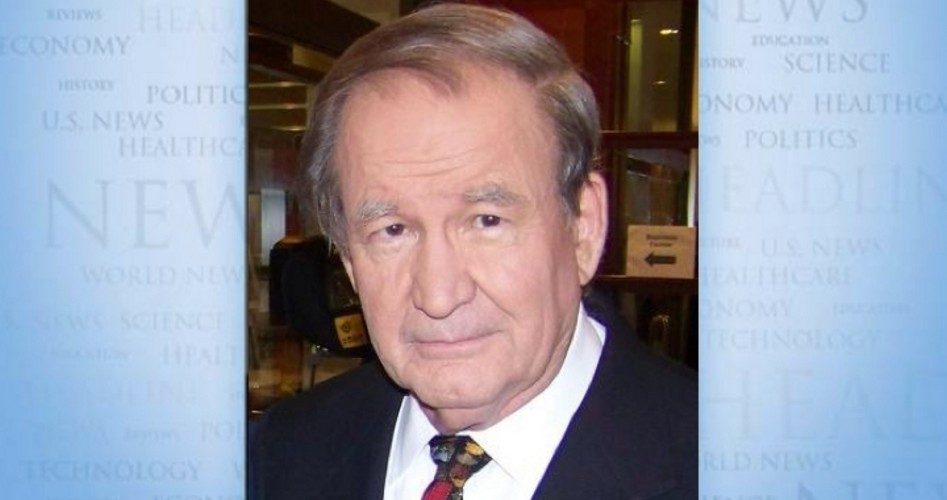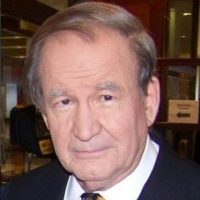
Our diversity is our greatest strength.
After playing clips of Democratic politicians reciting that truth of modern liberalism, Tucker Carlson asked, “How, precisely, is diversity our strength? Since you’ve made this our new national motto, please be specific.”
Reaction to Carlson’s question, with some declaring him a racist for having raised it, suggests that what we are dealing with here is not a demonstrable truth but a creed not subject to debate.
Yet the question remains valid: Where is the scientific, historic or empirical evidence that the greater the racial, ethnic, cultural and religious diversity of a nation, the stronger it becomes?
From recent decades, it seems more true to say the reverse: The more diverse a nation, the greater the danger of its disintegration.
Ethnic diversity, after all, tore apart our mighty Cold War rival, splintering the Soviet Union into 15 nations, three of which — Moldova, Ukraine, Georgia — have since split further along ethnic lines.
Russia had to fight two wars to hold onto Chechnya and prevent the diverse peoples of the North Caucasus from splitting off on ethnic grounds, as Georgia, Armenia and Azerbaijan had done.
Ethnic diversity then shattered Yugoslavia into seven separate nations.
And even as we proclaim diversity to be our greatest strength, nations everywhere are recoiling from it.
The rise of populism and nationalism across Europe is a reaction to the new diversity represented by the Arab, Asian and African millions who have lately come, and the tens of millions desperate to enter.
Center-left and center-right parties are losing ground in European elections because they are seen as feckless in meeting what more and more indigenous Europeans believe to be an existential threat — mass migration from across the Med.
Japan’s population has ceased to grow, and each year brings fewer toddlers into its schools. Yet Tokyo resists the racial and ethnic diversity greater immigration would bring. Why, if diversity is a strength?
What South Koreans dream of is uniting again with the 22 million separated members of their national family who live in the North, but share the same history and blood.
This summer, in its Basic Law, Israel declared itself an ethnonational state and national home of the Jewish people. African migrants crossing the Sinai to seek sanctuary in Israel are unwelcome.
Consider China, which seeks this century to surpass America as the first power on earth. Does Xi Jinping welcome a greater racial, ethnic and cultural diversity within his county as, say, Barack Obama does in ours?
In his western province of Xinjiang, Xi has set up an archipelago of detention camps. Purpose: Re-educate his country’s Uighurs and Kazakhs by purging them of their religious and tribal identities, and making them and their children more like Han Chinese in allegiance to the Communist Party and Chinese nation.
Xi fears that the 10 million Uighurs of Xinjiang, as an ethnic and religious minority, predominantly Muslim, wish to break away and establish an East Turkestan, a nation of their own, out of China. And he is correct.
What China is doing is brutalitarian. But what China is saying with its ruthless policy is that diversity — religious, racial, cultural — can break us apart as it did the USSR. And we are not going to let that happen.
Do the Buddhists of Myanmar cherish the religious diversity that the Muslim Rohingya of Rakhine State bring to their country?
America has always been more than an idea, an ideology or a propositional nation. It is a country that belongs to a separate and identifiable people with its own history, heroes, holidays, symbols, songs, myths, mores — its own culture.
Again, where is the evidence that the more Americans who can trace their roots to the Third World, and not to Europe, the stronger we will be?
Is the Britain of Theresa May, with its new racial, religious and ethnic diversity, a stronger nation than was the U.K. of Lloyd George, which ruled a fourth of mankind in 1920?
Was it not the unity Bismarck forged among the diverse Germanic peoples, bringing them into a single nation under the Kaiser in 1871, that made Germany a far stronger and more formidable power in Europe?
Empires, confederations and alliances are multiethnic and multicultural. And, inevitably, their diversity pulls them apart. The British Empire was the greatest in modern history. What tore it apart? Tribalism, the demands of diverse peoples, rooted in blood and soil, to be rid of foreign rule and to have their own place in the sun.
And who are loudest in preaching that our diversity is our strength?
Are they not the same people who told us that democracy was the destiny of all mankind and that, as the world’s “exceptional nation,” we must seize the opportunity of our global preeminence to impose its blessings on the less enlightened tribes of the Middle East and Hindu Kush?
If the establishment is proven wrong about greater diversity bringing greater strength to America, there will be no do-over for the USA.
Photo of Patrick J. Buchanan: By Bbsrock – Own work, CC BY-SA 3.0
Patrick J. Buchanan is the author of a new book, Nixon’s White House Wars: The Battles That Made and Broke a President and Divided America Forever. To find out more about Patrick Buchanan and read features by other Creators writers and cartoonists, visit the Creators website at www.creators.com.
COPYRIGHT 2018 CREATORS.COM



